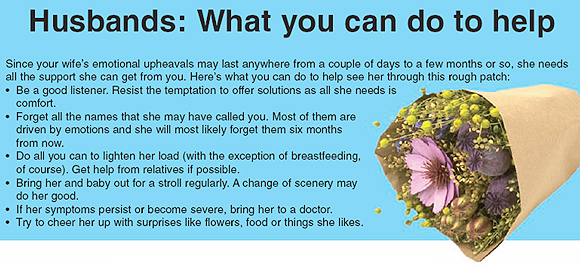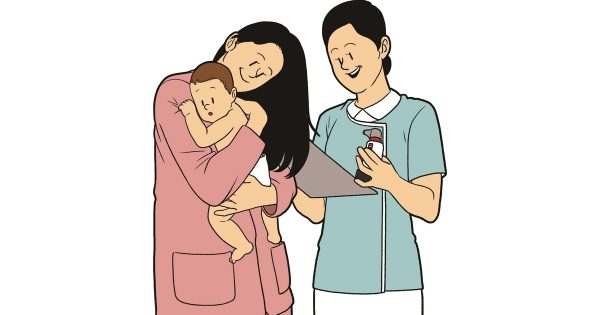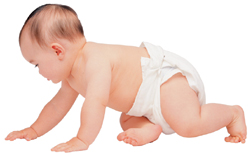Being a new mother, it is perfectly natural for you to feel bogged down with the stress and strains caused by the bodily changes after birth and the added responsibility of caring for baby. With baby demanding full attention from you all the time coupled with exhaustion, everything just seems to go out of hand. You may feel as if your previously organised and controllable world has just turned upside down. Suddenly, it is as if the carefree and serene family life you envisioned has vanished before your eyes. As such, it is not surprising that your emotions have gone haywire.
Red-eyed and drained of energy, you may ask yourself again and again: What did I do wrong? Resist the urge to bang your head against the wall (unless it brings a certain amount of comfort and does not cause a head injury!). This chaos at home is not your fault; neither is it baby’s fault. You certainly have not ‘lost your mind’ or ‘gone crazy’. Believe it or not, 80 percent of new mothers experience emotional upsets after childbirth too.

These emotional changes most probably occur as you are grappling to adjust to this new chapter in your life. Although it is normal to feel a little emotional from time to time, you need to keep track of your feelings and prevent your emotions from turning into something more serious which could cause harm to yourself and baby.
Coping with the blues
Ever heard of the ‘baby blues’? They are not a type of music and in this case, not the name of a comic strip either. They are actually a mild form of depression, which usually go away within two weeks and require no formal or medical treatment.
Symptoms
- Disappointment that the birth was not as expected
- Urge to cry for no reason
- Irritability and impatience
- Anxiety and restlessness
- Loss of appetite

Even though it is normal to feel the blues from time to time, it does not mean that you should just allow yourself to ‘suffer’. Here’s what you can do to help chase the blues away:
- Find a nonjudgemental person you can talk to. Open up your feelings to him/her.
- Be honest with yourself. You are not expected to do everything on your own. So if you need help, just ask.
- Get someone to help you around the house.
- Make time each day to do something you enjoy as baby sleeps, even if it’s just for 15 minutes.
- Keep a diary. Write down all your emotions and feelings every day.
- Try not to get angry at yourself when you can only seem to get one thing done or none at all in any given day. Take one step at a time.
- Discuss whatever concerns you may have with your doctor.
- Tell your spouse and close relatives how you feel and get them to help cheer you up by showing you the positive side of life.
Managing post-partum depression
Post-partum depression (PPD) is a more serious and long-lasting form of depression compared with the ‘baby blues’. It is actually a mental illness caused by hormonal changes which affect the way your body functions. Thus, it requires medical treatment to relieve its symptoms. So please consult your doctor for further information about PPD. Also, always remember that there is nothing to be ashamed of, and you are not alone.
It is important to recognise PPD as early as possible. The sooner you recognise you have PPD, the better your chances of treating it. Here are some of its symptoms:
- Feelings of guilt that do not go away.
- A sense of hopelessness and sadness.
- Sudden urges to hurt yourself or baby.
- Drastic mood swings, feeling very happy at one moment, and suddenly very depressed at the next.
- Either over-attentiveness or lack of concern for baby.
- Feeling that life is not worth living.
- Changes in sleep patterns and appetite.
- Fear of being alone.
If you suspect that you have PPD, you should:
- Seek medical help as soon as possible and follow your doctor’s advice faithfully.
- Talk to close family and friends about how you feel.
- Learn more about PPD from your doctor and other medical books.








Comments